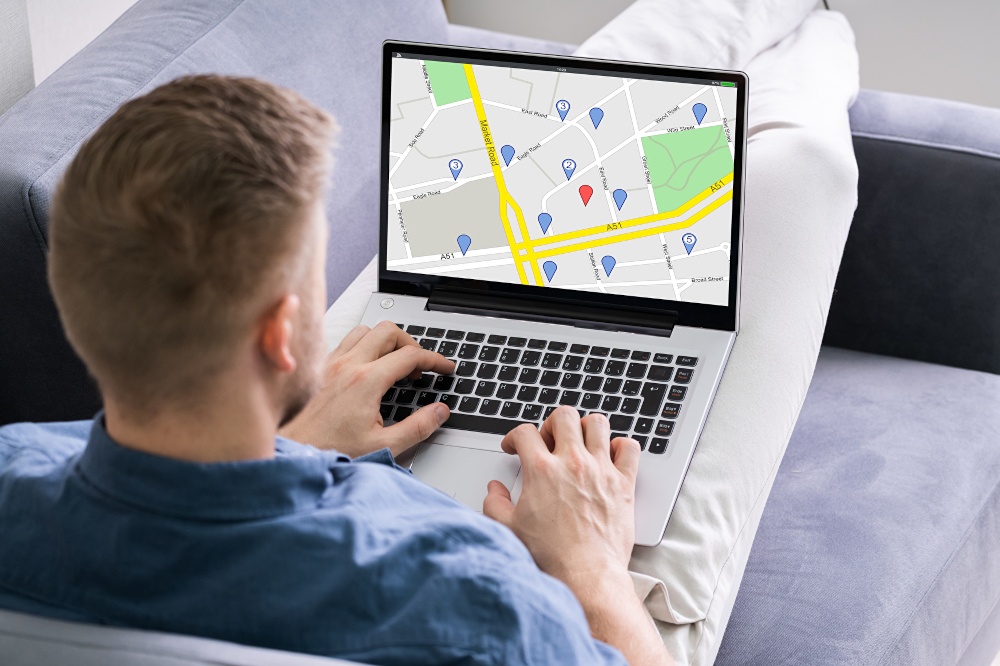Telecom & Technology Consulting

When retail leaders have trouble sleeping at night, it’s not necessarily because they’re worried about low sales of specific products. Rather, their lack of rest stems from more of a high-level concern: How can they provide faster delivery, keep costs low, improve efficiency and security, and better predict the forces that will affect the supply chain? And more than ever, major retailers are turning to GPS tracking technology as the answer to that multi-pronged question.
Perhaps the most obvious benefit of GPS tracking is how it provides 100% visibility into the entire delivery process – actually, the entire operations mechanism. All which enhances efficiency like never before, as you can leverage tracking data to optimize routes in real-time, reduce mileage, and cut fuel costs.
In a related benefit, GPS can help with traffic monitoring. Managers can redirect drivers to avoid congestion and get deliveries completed in the quickest amount of time possible. Instead of wasting time, you end up with more time to get more orders to customers.
That’s the central idea here: customer satisfaction. With an unambiguous view of real-time locations and delivery status, retailers can supply customers with extremely precise estimates for when a package will arrive on their doorsteps. This is the final step in the customer satisfaction journey, which ultimately leads to a strong brand impression and long-term loyalty.
Some may see how GPS tracking can benefit small- and medium-sized operations, but question if it can scale to major retailers who pump out thousands of shipments each day. Yes, it can. GPS provides real-time updates on vehicle location, allowing retailers to confidently confirm delivery schedule for both picking up and dropping off. And for even more accountability, retailers can integrate tracking with order and inventory management to have complete visibility into the fulfillment process.
Interestingly, GPS technology doesn’t only foster efficiency, it acts as a safety net when there are delivery problems or discrepancies. When there are customer complaints or issues from anyone in the supply chain, retailers can access data for proof of delivery, verification of product specifications, and other “evidence” that they fulfilled their obligations. By sharing tracking data with suppliers and consumers, retailers not only resolve issues quickly, they build trust that translates into ongoing relationships
By knowing the exact location of deliveries and supplies, GPS also gives retailers a real-time security tool to protect themselves from theft and other risks. Managers can detect unapproved detours and suspicious activity, and be proactive to prevent any negative ramifications. This ability ensures regulatory compliance, and can potentially speed up recovery of stolen property.
When something does go wrong, such as an accident or damage to orders, GPS data will provide valuable documentation for insurance claims. Even more, with GPS sensor integration, retailers can monitor cargo, item movement, and temperature. In short, GPS can provide both preventative and proactive security, which saves retailers money while bolstering their reputation as a trusted brand.
GPS data can also provide retailers with a view into the future. For example, GPS fleet analytics allow executives to make smarter strategic decisions around delivery resourcing, routing, infrastructure, transportation, supply chain and more. Data regarding vehicle location, fuel usage, and stopping patterns (to name just some) help retailer leaders refine their fleet strategy. Even more, retailers can leverage analytics to determine ideal locations for new stores and distribution centers.
Distilled to its essence, what GPS truly delivers is competitive advantage – or viewed from another perspective, a tool to compete. The name of the game for retailers today is speed and convenience. Whoever makes it easier to shop and delivers it faster wins the day. GPS is a key element in the speed/convenience formula, which is the foundation of consumer expectations.
But as retailers know all too well, consumer expectations shift over time. Fortunately, GPS tracking systems will continue to evolve to accommodate new market demands. As such, GPS will foster automation and more precise data. In fact, as tracking integrates with smartphones and other devices, retailers will build self-service order tracking portals for consumers. Anytime, anywhere, on any device, they’ll be able to monitor progress at any stage in the delivery journey.
In yet another thread to this story, GPS will have an enormous impact on autonomous vehicles, which are the future of retail delivery. With its routing capabilities, safety systems, and sensors, GPS is a key component of the coming era of transportation and shipping, including the use of drones for small parcel delivery. It’s a must-have tool for retailers.